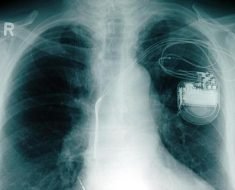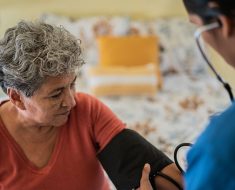A member of a Swiss clinic set to help Australia’s oldest scientist end his life has said it is an “atrocity” that Australia had not allowed the 104-year-old to die at home.
David Goodall, who caused a stir two years ago when his university tried unsuccessfully to have him declared unfit to be on campus, does not have a terminal illness but says his quality of life has deteriorated and that he wants to die.
“But because he is not terminally ill… he has to travel to Switzerland,” said Ruedi Habegger, a co-founder of Eternal Spirit, one of a range of foundations in Switzerland that assist people who want to end their lives.
“This is the atrocity of it all. This old man… should be able to die at home in his bed, like we can do here in Switzerland,” he told AFP in an interview.
Goodall is due to end his life at Eternal Spirit’s clinic near Basel on May 10.
Assisted suicide is illegal in most countries around the world and was banned in Australia until the state of Victoria became the first to legalise the practice last year.
But that legislation, which takes effect from June 2019, only applies to terminally ill patients of sound mind and a life expectancy of less than six months.
Assisted voluntary death
According to Swiss law meanwhile, anyone who is of sound mind and who has over a period of time voiced a consistent wish to end their life can request so-called assisted voluntary death, or AVD.
“If a completely healthy person comes and says, I am of sound mind and I have decided to die, the reason is none of your business, theoretically,” Habegger said.
He pointed out though that it was very uncommon for healthy people to ask to die, and said most doctors would balk at taking part in the process if they did.
The vast majority of the some 80 people who turn to Eternal Spirit each year to die are elderly, sick and in pain, he said.
The average age of people who receive AVD from the foundation is 76, with the youngest being 32 and the oldest—until now—99.
‘Very resentful’
“I don’t want to go to Switzerland,” Goodall told broadcaster ABC before he set off on his final voyage last Wednesday, adding that he had to “to get the opportunity of suicide which the Australian system does not permit”.
“I feel very resentful,” said the honorary research associate at Perth’s Edith Cowan University.
He flew first to France, to visit his son, and will travel on to Switzerland next week.
“If all the doctors’ appointments and everything goes the way we expect it to go, then he will be able to have his AVD… on Thursday,” Habegger said.
Eternal Spirit is advocating for all countries to introduce systems like the Swiss one, allowing people to choose to die “in dignity”.
Unlike the largest assisted suicide association in Switzerland, Exit, which only caters for Swiss residents, the foundation—which runs on annual membership fees from its more than 1,100 members—counts 75 percent foreigners among its AVD patients.
It covers all AVD-linked expenses for Swiss members, but foreigners are expected to pay for any necessary medical examinations and procedures prior to the act, which can be pricey in Switzerland.
Exit International, which helped Goodall make the trip, launched a GoFundMe campaign to help upgrade the scientist and his helper to business class on their flight to Switzerland, and quickly raised more than Aus$20,000 (US$15,000).
Swiss AVD patients usually choose to end their lives at home, but for foreigners Eternal Spirit has a clinic with homely furnishings and enough rooms for relatives and friends who want to be there in the final moments.
Habegger said Goodall was travelling with a friend, who would be with him until the end.
‘Short and peaceful’
In assisted dying, the person must be physically capable of carrying out the final deed themself.
Most Swiss foundations ask patients to drink sodium pentobarbital, an effective sedative that in strong enough doses causes the heart muscle to stop beating.
Since the substance is alkaline and burns a bit when swallowed, Eternal Spirit has instead opted for intravenous infusions.
A professional prepares the needle, but it is up to the patient to open the valve that allows the short-acting barbiturate to drip into the saline solution.
A video is shot of the patient stating their name, date of birth and that they understand what they are about to do.
The camera keeps rolling as they open the valve and the footage is used as evidence that they willingly took their own life.
“Then we shut off the camera, because the rest is intimate, private,” Habegger said.
It usually takes 20 to 30 seconds for the person to fall asleep. “Then they go deeper and deeper, until the heart muscle relaxes,” he said.
“It is not a heart attack. It is not a painful process. The heart just stops beating.” Within a minute and a half, it is usually over, Habegger said.
Source: Read Full Article





